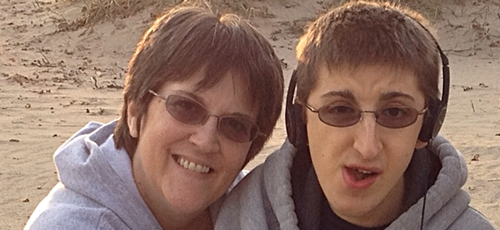In barring state governments from forcing home caregivers to join a labor union, the U.S. Supreme Court this week also took big swipes at a prior ruling that allows states to force full-time state workers to join unions.
“They destroyed Abood in every conceivable way,” said Professor Josh Blackman of South Texas College of Law, referring to this week’s 5-4 ruling in Harris v. Quinn. The Harris ruling also addresses Abood v. Detroit Board of Education, a 1977 Supreme Court case that allowed states to force full-time government employees to join unions.
The Harris decision, written by Justice Samuel Alito, declares Illinois violated the First Amendment rights of Pamela Harris and seven other home healthcare workers who joined her in the lawsuit. Harris cares for a severely disabled son in her home. Several years ago Illinois forced her and 20,000 other independent home healthcare providers to pay fees to the Service Employees International Union. Most of those workers, like Harris, are caring for family members who receive state Medicaid payments.
No Benefits from Membership
Blackman said these caregivers received no grievance protections, insurance or other benefits from the SEIU. “[The SEIU] represented them in name only” and demanded fees from them, which Illinois’ governor at the time, Rod Blagojevich, was happy to provide, knowing some of that money would find its way back into his campaign coffers. Blagojevich is currently serving a 14-year sentence in federal prison after having been convicted on corruption charges that included trying to “sell” the Senate seat formerly held by Barack Obama after he became president.
“Everyone knew this was government inserting itself between family members. This looks like government trying to interfere with a welfare payment and siphon off some of it for the union,” said Walter Olson of the Cato Institute, who added Alito “was doing all but say ‘I dare you to bring us a sympathetic case'” to also challenge the Abood ruling.
Blackman and Olson made the comments during a Tax Foundation conference call to discuss the Harris case.
The Alito ruling distinguishes between “quasi” governmental workers like Harris and other independent home healthcare workers and “full-fledged” government employees such as teachers or police who receive collectively bargained pay, health insurance, vacation pay, sick pay, and other benefits, and who are under direct supervision of other government employees.
Alito wrote the Court did not gut forced unionization for all government employees because the Illinois law applied only to home workers for unionization purposes, and not other state benefits or protections.
Worries of Union Officials
Even though the Court left the ruling in Abood in place, labor union officials apparently fear the implications for Abood in the Harris ruling.
“The Supreme Court, today, struck down the collective bargaining rights of public employees and virtually told all workers that their American Dream might actually become an American Nightmare,” said Larry Hanley, president of the Amalgamated Transit Union, in a statement.
He added, “Make no mistake – this decision is not the end of this story. It is part of an ongoing effort by the obscenely wealthy ultra-rich to render unions totally ineffective, if not eliminate them altogether. And that will ultimately accelerate the current erosion of the middle class and hasten the economic polarization of society that threatens the very foundations of our republic.”
Paul Kersey, director of labor at the Illinois Policy Institute, declared in a blog post, “For more than a decade, government unions have been forcing people who are not state workers – moms and dads caring for children with developmental disabilities, home day-care providers for low-income children and others – to pay dues to a union as a condition of receiving help from their state governments. Both Gov. Pat Quinn and now-disgraced former Gov. Rod Blagojevich issued executive orders allowing the unionization of people who were not state workers. This resulted in Illinois government unions making $20 million a year from these workers, many of whom never wanted to join or pay dues to a union in the first place.
“Fortunately, today the U.S. Supreme Court has affirmed that plaintiff Pam Harris won’t have to jeopardize and limit her son’s care by being forced to join a union she does not want, agree with or support.”
Carol Platt Liebau, president of the Yankee Institute in Connecticut, said the ruling defends the right of freedom of association for workers around the country.
“Vindicating the First Amendment guarantee of freedom of association, the Supreme Court made two facts crystal clear: Home health care workers work for their disabled or elderly patients – not the state – and private homes are not union shops,” she said in a statement.




